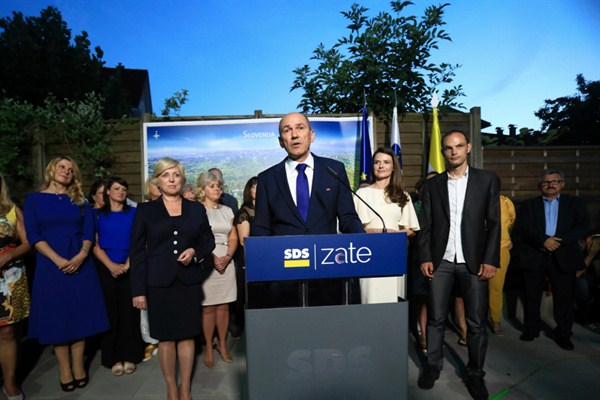The Slovenia Democratic Party, led by former Prime Minister Janez Jansa, finished first in Slovenia’s parliamentary elections Sunday, with roughly 25 percent of the vote. Jansa, who was supported by Hungarian Prime Minister Viktor Orban, campaigned on an anti-immigration platform centered on opposition to the European Union’s proposed quota system for redistributing asylum-seekers among member states. But neither Jansa nor the several parties that split the centrist vote will find it easy to assemble a majority coalition. In an email interview, Florian Bieber, a professor of Southeast European history and politics at the University of Graz and director of the Center for Southeast European Studies, discusses the implications of the election results and the limits to the “Orbanization” of Slovenia.
World Politics Review: What explains the victory of Janez Jansa’s Slovenian Democratic Party in Slovenia’s elections, and what do the results say about Slovenia’s political landscape?
Florian Bieber: Jansa’s victory was relative. While his party finished first with around a quarter of the vote, he is far from having a majority in Parliament and gained only around 4 percent more voters this time than he did in the last elections in 2014. In this sense, his performance is a reflection of his ability to dominate the center-right in Slovenia, as opposed to a more fragmented center and center-left. Jansa is the great survivor of Slovenian politics, having transformed himself multiple times and survived accusations of corruption and abuse of office over the course of his nearly 30-year career. In recent years, he has shifted from a conservative line to a more openly anti-immigrant, illiberal line, following the lead of Hungarian Prime Minister Viktor Orban. However, he and his party lack Orban’s euroskeptic dimension, while the anti-communist rhetoric of Orban or Poland’s Jaroslaw Kaczynski fall on less fertile ground in Slovenia.

